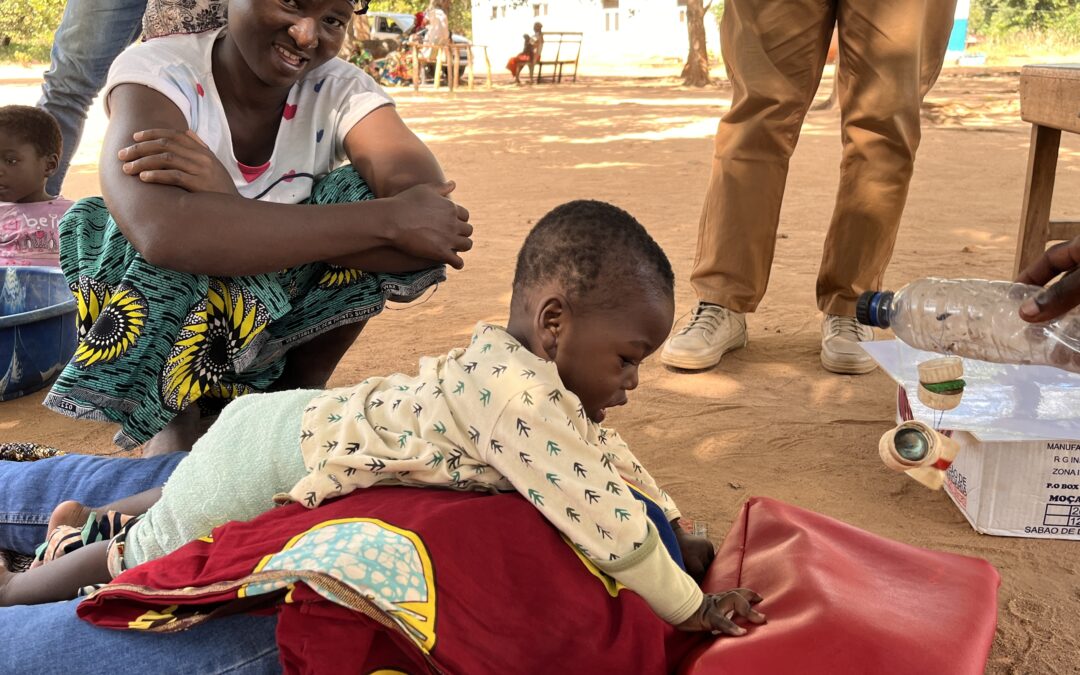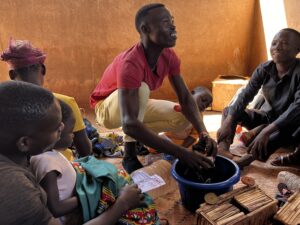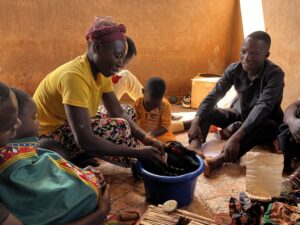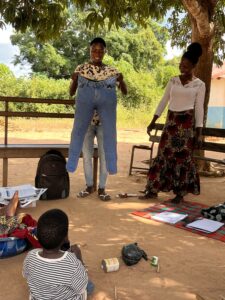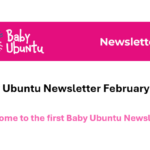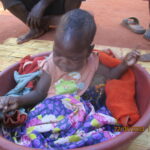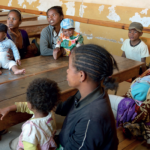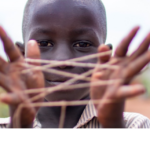It is estimated that around 10% of children under 5 in Sub-Saharan Africa have some type of disability. In Mozambique, the main risk factors for poor development are poor uptake of antenatal care, low quality of obstetric care especially during complications, and high chronic malnutrition and micronutrient deficiency in young children. PATH, a global public health organization, has partnered with a Mozambican Association of People with Disabilities (ADEMO) to identify, refer and offer community-based rehabilitation to children 0 to 5 with developmental delays and disabilities. Over 500 children have been supported by ADEMO since May 2019 in the Monapo district of northern Nampula province, leading to a large increase in numbers of children starting physiotherapy services and to caregivers adopting many rehabilitation practices in their daily routines.
When the assessment conducted in 2021 demonstrated that most caregivers were not aware of other families in their communities that had children with disabilities and felt that they had few peers to ask for support, PATH and ADEMO decided to adapt and pilot the Ubuntu parenting program in 15 health areas, in this way covering the whole district.
Since it was not feasible to deliver the program through health providers in short-staffed remote health posts, the original Ubuntu program was simplified for use by ADEMO volunteers, many of whom had low literacy skills. Some sessions, such as on positioning, had to be broken down into several shorter sessions, and the number of activities per session was reduced to a maximum of three. Technical or academic terms were replaced with everyday words. And locally relevant information was added to the program, for example, on the most common causes of childhood disability in the country, and on recommended self-care and hygiene practices for communities that do not have running water and toilets.
To facilitate the delivery of the program, it was decided that ADEMO volunteers would be trained gradually. The facilitators brought the volunteers together on a monthly basis to demonstrate and to role play each session, and the same session would then be delivered to the caregivers in the community.
As mothers and fathers engaged with the sessions, we began to learn several important lessons. Below we try to summarize some of them.
- When there are few Ubuntu caregivers in any given community, the best meeting place may be a local health facility, as this allows families to follow up on missed consultations or to refill their medications. Health facility is also a good place to meet and engage new families, who may not yet be familiar with the program.
- In some groups there were none or only one caregiver of a child with positioning and feeding challenges; this made some of the sessions less relevant for the group and may have negatively influenced attendance. Adjusting sessions to the needs of the caregivers may be important.
- While younger, higher educated volunteers were able to deliver the sessions with high fidelity, it was actually older and more respected volunteers who were able to ensure the more regular participation of caregivers in the sessions. Pairing up younger and older volunteers may be a strategy to explore.
- Having locally made play items for the children to play with during the sessions has been a great success, as children were eager to come and play, and caregivers could focus on the sessions.
- Hands on activities that required using props, comparing pictures of appropriate and inappropriate positions, or role playing, were easily understood and most enjoyed by the families. However, activities that required showing to caregivers too many photos, were a bit challenging for the volunteers to deliver.
- Sequences of images such as the ones showing a mother talking to the baby over several months, were not well understood, as both volunteers and participants assumed that each image in a sequence showed a different person and not the same person over time.
- More customized images and models of assistive devices need to be included in the manual, showing props that can be produced affordably and with local materials. An example of such local adaptations would be a spoon handle reinforced with a cloth wrapped around it or with a reed stick, and positioning pants stuffed with local hay as opposed to clothes or rags.
We are currently evaluating the impact of this pilot on caregiver knowledge and practices, and are then hoping to use the lessons to develop an improved Ubunto program that is more suitable for the context of rural Mozambican families. Mozambique’s Ministry of Health is keenly following the pilot, since having parenting programs available for parents of children with disabilities is one the objectives of the National Rehabilitation Plan.
This work has been supported by the Conrad N.Hilton Foundation
